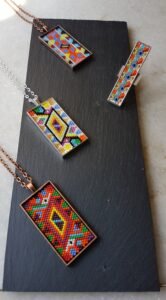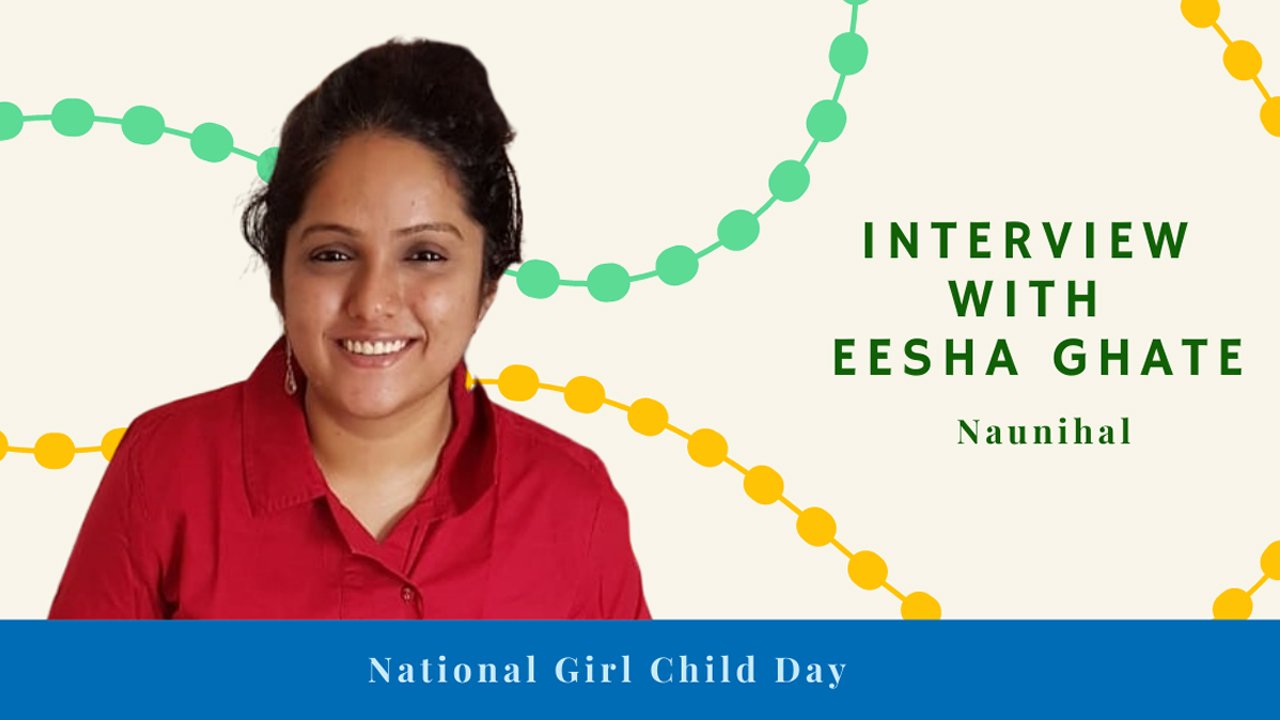Azra Qaisar
DOCUMENTATION AND COMMUNICATIONS MANAGER
Eesha Ghate has been volunteering with Prerana since 2016. A few years ago, she quit her job to start her beaded jewelry brand, OMOYA. Eesha has been facilitating sessions on jewelry-making with the girls who stay at our Naunihal Home for Girls for a few years now. This Girl Child Day, we met with Eesha to understand her experiences of working with Naunihal, volunteering, and working with young girls.
It has been a while since you have been associated with Prerana. How did it all begin?
I used to work in an investment bank till a few years ago when I quit my job. It was around the time that I discovered the art of making beaded jewelry. I was encouraged by my sister to take it further, and I wanted to also share my skills with others around me. I reached out to Priti Tai, and soon I was volunteering to teach jewelry making to the girls at Naunihal.
How has the experience of volunteering at Naunihal been for you?
I wasn’t expecting the overwhelming response to my workshops! There were so many girls willing to learn, and I wanted to make sure I did justice. The girls have shown immense interest, they are very quick learners and are extremely creative with colors and designs. In the time that I have spent with these gifted girls, I have seen them grow, not only, in their competence as beaders but also as individuals. They seem more confident and open. I truly enjoy working with them, and I feel they have grown fond of me too. We respect each other, and I think that is quite important.
We often get many requests from people asking for volunteering opportunities. What do you think one must keep in mind while working with children from vulnerable backgrounds?
I think it is important to know the rules of the facility, and follow them as is asked of you. The rules and protocols exist for a reason, and adhering to them is essential. It is also important to set boundaries while working with children who have faced trauma. You cannot ask them about their cases, or say things that may trigger them. You have to be sensitive to their mental health.
It is also important that you are consistent in your work if you want to build a relationship with the girls. You have to keep showing up in order to build trust with them. Finally, I feel that it is important to seek feedback so that you can improve yourself as a volunteer and give maximum value. Ask the staff and the children about how they like your sessions, and how you can do better. It makes the process more inclusive of their needs.

If there is one thing that you feel that young girls must be taught, what would that be?
Financial education is very important, and somehow I feel it does not reach girls. Opening a bank account, saving money, and being able to manage your finances is important to be independent. I feel a lot of times, the male members in the family tend to manage these things, making the women dependent on them.
Who are the women and girls that you admire?
Women in general, have it tough. I admire any woman who can make time for her home, her work, and herself. I come from a privileged background, and often do not have to face these challenges but I understand how tough it can get.
I also admire women who work in the social sector. Take Madhuri Tai (Madhuri Shinde, Superintendent at Naunihal), for instance. Running a 24*7 facility is challenging and exhausting work but I can see how much she cares for the girls and wants to give them a comfortable life and a brighter future. Lastly, I admire the resilience and optimism of the girls who I work with, at Naunihal. The courage and strength they show in working towards their rehabilitation are truly admirable.
How do you think we can do better in the way we raise young girls?
I think we should begin by treating any child as a ‘child’ and not a ‘girl-child’ or a ‘boy child’. They should be treated equally and given access to the same kind of resources and opportunities. I feel there are many skills of running a house like cooking, cleaning, doing laundry that girls are expected to know but when it comes to boys, it is seen as something optional. We have to raise them equally in all aspects.






